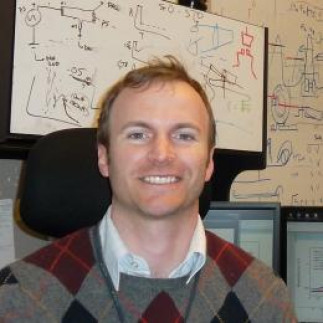Using Synthesis as a Characterization Strategy in Strongly Correlated Materials
Zac Ward
Oak Ridge National Laboratory
Présentation en anglais
Vidéoconférence, Zomm #: 892019835 (Zoom link)
Lorsque demandé, indiquer 'zéro zéro deux quatre sept deux' en chiffre.
Abstract: The way that materials behave—are they magnetic, are they superconductors, are they structurally strong—can be simply thought of as a response to what the electrons in the material are doing. Controlling the atoms’ arrangement to one another in a crystal lattice changes where the electrons reside and how they interact with one another. If we can control the atomic structure and makeup, we can then manipulate what the electrons are doing. Understanding this fact is particularly important in materials where strong electronic correlations are present. In these systems, the nearly equivalent energies of the spin, charge, and orbital order parameters mean that even slight variation to a single parameter can have a dramatic impact on what functional phenomena emerges. While theoretical modelling of materials’ behaviours allow direct modification of single parameters in a model Hamiltonian or first principles techniques, experimental approaches are typically limited by methods that influence multiple parameters simultaneously due to extrinsic inhomogeneity and disorder; e.g. electron doping with chemical substitution also changes local crystal symmetries and adds weak structural disorder, which clouds the cause-effect relationship between the specific impacts of orbital and charge parameters. I will describe our efforts to close this critical gap between theory and experiment through the development of new synthesis approaches aimed at minimizing extrinsic contributions when one or more order parameters are controlled. We will close with new directions discussing how the intentional application of spin and exchange disorder on a single crystal lattice might provide previously impossible tunability to magnetic phase control, dynamics, and frustration.
This work is supported by the DOE Office of Science, Basic Energy Sciences, Materials Sciences and Engineering Division.
For more information about Dr. Ward, you can consult his research web page.
Cette conférence est présentée par le RQMP.

